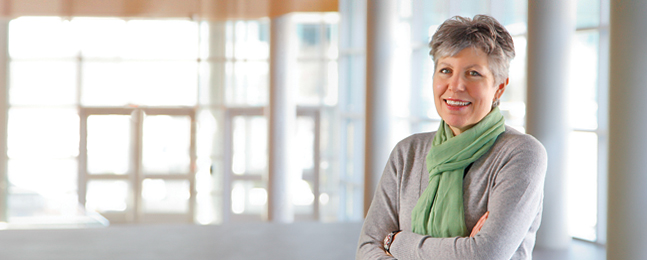Letter from the Editor

Mike Lovett
Leaf through a college viewbook, and among the sea of smiling faces you’ll read about students pursuing “social justice,” “the common good” and “social responsibility.” As we like to say, in a nod to Brandeis’ Jewish roots, they are repairing the world.
We don’t own the collegiate social-justice market — every liberal arts institution passionately promotes doing good, not just doing well. Still, it’s fair to say social justice is in our DNA. Examples abound of Brandeisians engaging in social justice work on campus, in the community, around the world and in these pages.
Two such stories in this issue chronicle a level of personal involvement and persistence in social justice work most of us would never consider — or even be capable of. In the cover story, “The Dark Side of Justice,” PR executive Scott Farmelant ’86 takes on the pro bono case of a lifetime, literally.
Farmelant is a barrel-chested guy who favors tailored rolled-up shirt sleeves, displays a hint of swagger and loves to talk. In 1993, he covered the murder trial of East Cambridge teenager Joe Donovan for the Cambridge Chronicle. Donovan had punched an MIT student after a brief argument, unleashing a tragic consequence: Another teen who was with Donovan that night stabbed and killed the student.
Under a rarely used legal provision, Donovan, 19 at the time, received a life sentence without parole; the killer, on the other hand, served only 11 years. In 2009, almost two decades after Farmelant wrote about the case, it resurfaced in his life. This time, he wouldn’t be an observer.
Farmelant spearheaded an epic pro bono PR campaign to win Donovan’s freedom when the odds of success were vanishingly small. Why? The two men had nothing in common — one was a convicted felon who had spent years in solitary, and the other was a successful PR executive with a family.
In our second feature, “Behind Enemy Lines,” infectious-disease specialist Steven Hatch ’91 brings home the agony and the tedium of a long volunteer stint treating Ebola patients in the sweltering Liberian jungle. Like Farmelant’s decision to take on a seemingly losing cause, Hatch’s resolve to go to the heart of the outbreak was also matter-of-fact, even prosaic. Even his wife and their twins were unemotional about it.
These two Brandeisians saw opportunities to move the needle — to bring real help to desperate situations. Maybe that’s the social-justice value proposition Brandeis offers: doing what you’re good at to do good.
Laura Gardner, P’12
Editor-in-Chief
